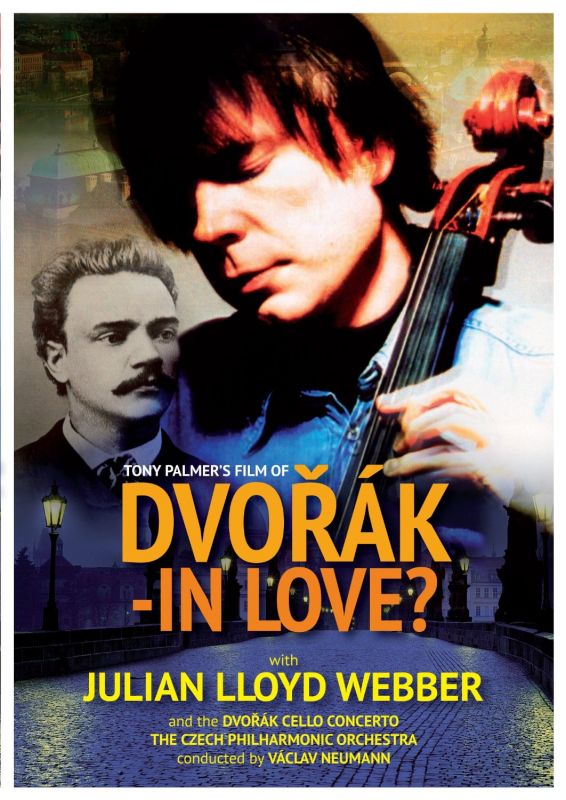Dvořák – In Love?
View record and artist detailsRecord and Artist Details
Composer or Director: Antonín Dvořák, Julian Lloyd Webber
Genre:
Orchestral
Label: Tony Palmer
Magazine Review Date: AW2014
Media Format: Digital Versatile Disc
Media Runtime: 52
Mastering:
DDD
Catalogue Number: FFDVD8102

Tracks:
| Composition | Artist Credit |
|---|---|
| Concerto for Cello and Orchestra |
Antonín Dvořák, Composer
Antonín Dvořák, Composer Czech Philharmonic Orchestra Julian Lloyd Webber, Composer Václav Neumann, Conductor |
Author: Jeremy Nicholas
Of more (not to say compelling) interest are the recording sessions: a young British cellist in the Czech capital recording an iconic Czech work with great Czech musicians. ‘Into the Lion’s Den?’ might have been a better title. Things do not begin happily when the soloist, sporting the same Beatles mop that served him throughout his career (now sadly terminated), worries about the ‘buzzy’ sound of his cello, a complaint that is not well received. Indeed, the whole session comes across as a tense, joyless affair (or boring – several musician are caught yawning or reading books). It makes riveting viewing: tiny but important details are discussed, tempi are adjusted, phrasing is polished while Lloyd Webber appears reduced to wordless nodding as the avuncular Neumann coaxes, advises and suggests solutions and improvements (the resulting Philips disc was outstanding).
Palmer aptly links the sessions for
the slow movement to Josefína (Dvořák quotes from one his own songs in the central section, one of her favourites), but the joyous opening of the finale accompanies archive footage of Hitler, Brezhnev, Dubček et al. It was this section that meant, despite being a co-production with Czechoslovak Television, the film could not be shown in the Communist-ruled country. When the Russians left two years later, this was the first documentary shown on the newly liberated Czech television. But, for me, this is Josefína’s concerto (cf the coda) and should not have been appropriated for nationalist propaganda.
Discover the world's largest classical music catalogue with Presto Music.

Gramophone Digital Club
- Digital Edition
- Digital Archive
- Reviews Database
- Full website access
From £8.75 / month
Subscribe
Gramophone Full Club
- Print Edition
- Digital Edition
- Digital Archive
- Reviews Database
- Full website access
From £11.00 / month
Subscribe
If you are a library, university or other organisation that would be interested in an institutional subscription to Gramophone please click here for further information.




